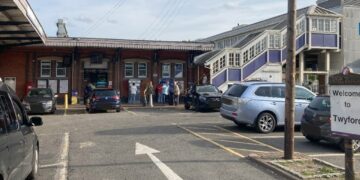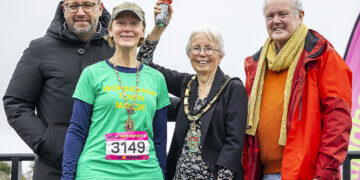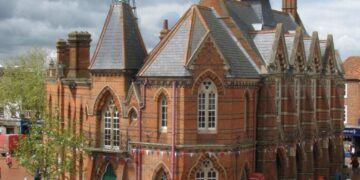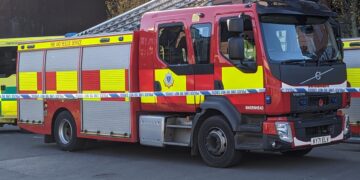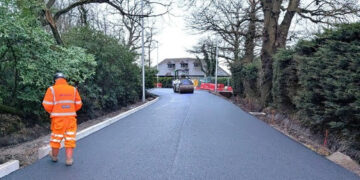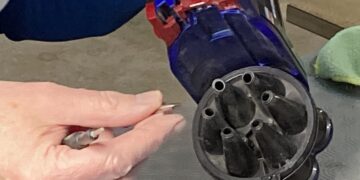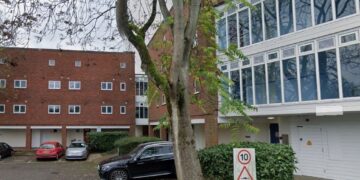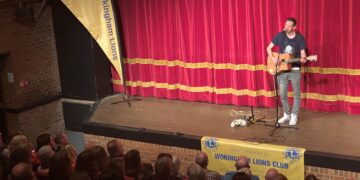ENGLAND is to face new lockdown measures from this Thursday through to early December in a bid to stem the spread of coronavirus.
Prime Minister Boris Johnson announced the measures at a press conference held on Saturday, October 31.
They will be implemented subject to a parliamentary vote on Wednesday, and expected to come into force from 12.01am on Thursday, November 5.
Under the rules – which apply to England only – all non-essential retailers will be forced to close, while pubs, bars and restaurants may only serve takeaways and arrange home deliveries, just as they did in the spring.
Leisure centres and entertainment venues will also need to close.
Except for childcare and other forms of support, households cannot mix indoors. However, they will be able to meet one other person outside, and the support bubble scheme – where people can meet one other household – will remain in place.
Overnight stays will only be allowed for work purposes, and only work-related international travel will be permitted – the same for commuting to the office, however people should work from home where possible.
Manufacturing and construction industries will be allowed to continue, while courts, schools and university will remain open.
Robert Peston reported earlier today that, as with the first relaxation of lockdown, only private prayer will be permitted in places of worship; services will be banned again. This was not mentioned in the Prime Minister’s address.
And outdoor exercise will be encouraged where possible.
The restrictions will last initially until December 2, when it is expected that different parts of the country will be placed into different tiers, as per the current system.
Mr Johnson said: “I am under no illusion how difficult this will be.”
Earlier today, Sir John Redwood shared his concerns over a new lockdown.
He tweeted: “Doesn’t a national lock down merely delay rather than stop the virus? Let’s concentrate on cures and limiting transmission whilst allowing businesses to stay open.”
And he told BBC Radio 4’s Today programme that he wanted a parliamentary vote on any new lockdown measures.
He said: “I’m full of foreboding about it (a new lockdown) – before we give support for such a measure there will need to be a convincing case about how much good the measures proposed would do to save lives.
“Against that we need an honest explanation of how much more damage it will do to jobs, livelihoods and the economy because we are impairing people’s ability go to work and earn a living, we are destroying good businesses; we are closing down large numbers of cafes, restaurants and hospitality businesses which are needed for all sorts of good reasons.
“There needs to be a balance.”
And at a speech delivered to a virtual meeting of Wokingham Borough Council’s executive committee on Thursday, leader Cllr John Halsall said: “Coronavirus is transmitted by contact or near contact. If we can inculcate a permanent behavioural change then we can slow the rate of increase and reduce it. Your Council is doing what is within its power to do so.”
These measures, he added, included working with care homes to keep them safe, asking schools to champion the cause of following the rules.
He also said that the council’s role in tracing people who had had contact with a person who tested positive for Covid-19 had been going well, while it had also been checking businesses to ensure they were compliant with regulations.
“We will be launching a scheme of community champions and marshals to lead by example, spread the word and provide factual information about the impact of the virus across the Borough.”
It was hoped that councillors would play a part in that.
He also said: “Fortunately, our residents are discerning and sophisticated who in the main are observing the rules and understand our difficulties. These programmes and more have had an effect.
“I appreciate that everyone is tired, and (the pandemic) has been going on for a long time, but sadly it will go on for much longer. Whilst there is much energy going into a vaccine, it is not yet successful and if it were it would be at least six months before it can be relied upon.
“So, we as a Borough and Borough Council must plan for the winter and spring and be in hope that next summer we will return to normal – if we remember what that is.”





